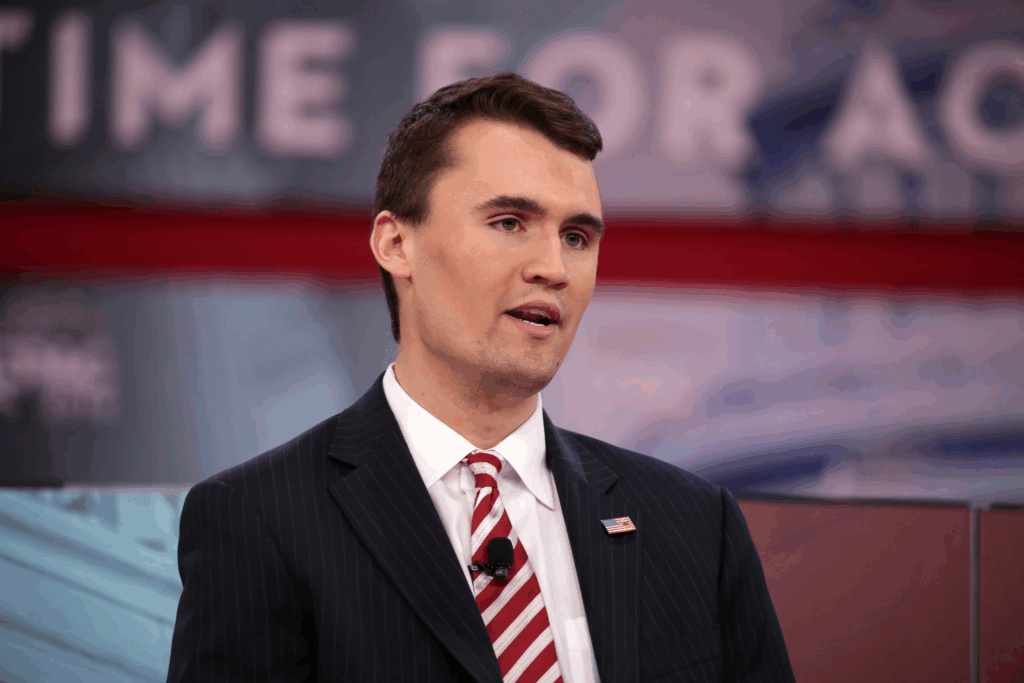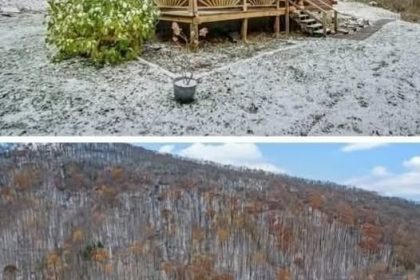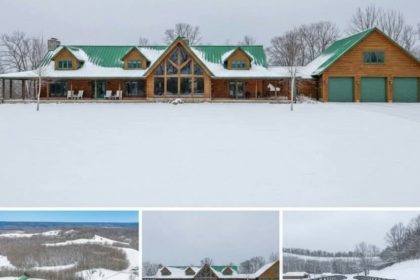he death of conservative activist Charlie Kirk has sparked a wave of political outrage and condolences, drawing new focus to Robert W. Kirk, his father, who hardly ever appeared in public with him. Social media posts and explainer articles emphasized that Robert is a Chicago-area architect who was long described as having worked on New York’s Trump Tower, a detail that many of Kirk’s supporters and detractors claim they had not connected to the activist’s later alliance with Donald Trump. As mourners shared biographies and old news clippings in the days leading up to the 31-year-old’s memorial at State Farm Stadium in Arizona. A larger attempt by audiences to fill in biographical details about a divisive character whose professional life was lived almost exclusively in public light is reflected in the abrupt focus on a low-key parent.
Authoritative published profiles identify Robert W. Kirk as an architect and portray the family as deliberately private. People magazine, summarizing information previously reported by NBC News, wrote last week that Charlie Kirk “was raised by his parents in a politically moderate household” and that “his mother was a mental health counselor” while “his father was an architect whose firm designed the Trump Tower in New York City.” The Washington Post’s obituary likewise noted simply that “his father was an architect, and his mother was a mental health counselor,” underscoring how little either parent sought the spotlight as their son’s prominence grew.

Information regarding Robert Kirk has typically appeared in secondary references rather than in his own words, save from the verification of his occupation. Robert “was involved in the construction of Trump Tower,” according to a frequently quoted passage in Charlie Kirk’s Wikipedia profile. This statement was repeated in numerous news recaps when people started posting “did you know?” questions regarding the family’s history on social media following the massacre. The idea that the family’s business connection to Trump’s most well-known estate predated the political ties Charlie would later develop has been strengthened by those descriptions and People’s story. The general theme of mainstream coverage is that Robert’s career was in architecture and that the Trump Tower connection is part of his resume as it is presented in public profiles, even though different outlets use different language—some say “involved in the construction,” while others say “worked on” or “whose firm designed.”
Following the assassination, a wave of “who are his parents?” explainers accompanied the spike in interest in Robert Kirk. Several international outlets summarized public records and previous reporting to claim that Robert owned or operated an architecture firm and that residential projects were the primary focus of his work. These claims supported Robert’s reputation as a professional who avoided political media even as his son rose to prominence as a partisan voice. Charlie Kirk’s parents remained private throughout his career, despite the fact that these versions differed in length and emphasis. People, which wrote one of the most popular summaries, agreed, stating that “his mother and father are more private, even though his career path put him in the public eye.”
It is undeniable that Robert and Kathryn Kirk brought their son up in the northwest Chicago suburbs, where local and national media outlets covered his early activism and youth activities. According to the Post, Charlie “grew up in the Chicago suburb of Prospect Heights” and went to Wheeling High School, where he was a varsity basketball captain and an Eagle Scout. The Chicago Sun-Times also highlighted Charlie’s local ties in their story. According to People’s review of NBC News reporting, those accounts—which are based on contemporaneous reporting and school records—give the best indication of a household that was more moderate than the views their son ultimately advocated.
Robert Kirk himself is quoted only sparingly in the public record. In a line resurfaced by the Washington Post from a 2013 Daily Herald interview, he said of his son: “He was always more clear on his surroundings and always better at questions. Always better able to understand what’s happening than your typical kid.” The remark, made long before Turning Point USA became one of the right’s dominant youth-mobilization brands, has been cited by outlets in the past two weeks as a rare on-the-record reflection from a parent who otherwise avoided headlines.
Readers piecing together the late activist’s life have found it impossible to resist the contrast between Charlie’s political path and Robert’s career. Charlie Kirk, who first voiced doubts about Trump in 2016, went on to become one of the president’s most well-known supporters, transforming Turning Point conferences into a platform for politicians who shared his views and later counseling the Trump circle throughout times of transition. This development was documented by national media in profiles and, following the murder, in retrospectives and obituaries. Although the fact that his father had a professional connection to Trump Tower years prior seemed more like a biographical aside to those audiences than an explanation of his worldview, it helped to establish that Trump was not a latecomer to the family’s history.
While Robert Kirk’s resume garnered a lot of interest, fact-checkers warned against speculations regarding his attendance at memorial services and status. According to a Yahoo-syndicated article, he is still alive and, based on the information provided, remains out of the public eye. It highlights his long-standing anonymity and describes him as the president of an architecture firm. Separately, media coverage of the memorial itself concentrated on the security footprint for a ceremony that was classified as a high-level federal event and on the well-known politicians who spoke, rather than on family members who refrained from seeking publicity—a focus that was consistent with the family’s stance throughout Charlie’s career.
The parents’ role is presented in plain terms in People’s account, which is based on NBC News and other mainstream sources: they reared their son in Illinois, remained secret while he entered national politics, and became grandparents in 2022 and 2024. The “discovery” of Robert’s Trump Tower tie surfaced online in that context, not so much as a fresh revelation as a rediscovered passage in a biography that many readers had not thoroughly examined until after Kirk’s passing. The resurgence of interest also illustrates how the activist’s murder brought attention to non-public family members, forcing media outlets to preserve the essential facts and avoid conjecture.
The key details of Charlie Kirk’s early life as reported by mainstream media have not changed in light of the increased scrutiny. He was born on October 14, 1993, in Arlington Heights, Illinois, and grew up mostly in Prospect Heights. He participated in student activism and debate at Wheeling High School before briefly attending Harper College and departing to pursue conservative organization full-time. Long before the shooting, political reporters were aware of those milestones, and they serve as the foundation for subsequent obituaries and retrospectives. Before publishing its obituary, which listed the essentials of Kirk’s family and education, The Post quoted Kirk earlier this year as saying that he pressed Republicans to provide young adults with real economic gains—a sign, according to his supporters, of an interest in policy that accompanied his combative rhetoric.
Robert W. Kirk only makes an appearance at the periphery of that story, which is consistent across reliable accounts. Public statements were usually made by coworkers and political allies, not parents, even in situations where procedure might have brought family into the picture. In his public remarks about the case as detectives advanced toward the suspect’s capital charges, Utah Governor Spencer Cox mentioned “Charlie’s parents” and urged patience as the legal process progressed—an acknowledgement of their role without drawing attention to themselves. Instead of focusing on family members who did not speak from the platform, coverage of the memorial itself focused on speeches by prominent national personalities and security events that resulted in an arrest close to the venue.
There is now a solid response in the public domain to the more focused query that fueled social media posts: who was Charlie Kirk’s father? He is Robert W. Kirk, an architect from the Chicago area whose work on the most well-known tower bearing Donald Trump’s name has been connected in published profiles. While their son developed a devoted and vehemently opposed fan base, his wife, a mental health counselor, kept the family’s daily activities hidden. These details complete a picture that many readers, who had only come across the activist through viral debate video, were unaware to search for. However, they do not alter the circumstances surrounding the murder or the political fallout from Kirk’s career.
Robert Kirk won’t likely be the center of attention. As the national media shifted its focus to developments in the inquiry, court filings, and public safety concerns at significant political events, it appears that the privacy he upheld while his son was alive held up. However, the little biographical digression demonstrates how audiences frequently naturally gravitate for the family bookshelf following the death of a public figure—the resumes, hometowns, and silent quotations that serve to clarify a life that transpired nearly exclusively in the spotlight of politics. The shelf in Charlie Kirk’s case is intentionally thin, and the pages that are there—Robert’s line of work, the Trump Tower phrase, and a 2013 sentence to a local newspaper—indicate that a parent was happy to step aside while his son’s politics took center stage.
In that sense, the most revealing material about Robert Kirk may still be that single, decade-old observation about a boy who would become a household name on the American right: “always better able to understand what’s happening than your typical kid.” It is a father’s voice preserved in print, resurfacing now not to anchor a new narrative but to round out a familiar one, as a country absorbs the details of a life cut short and the outlines of a family that chose, and continues to choose, a quieter path.





